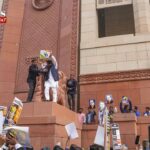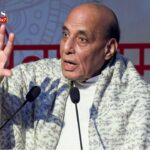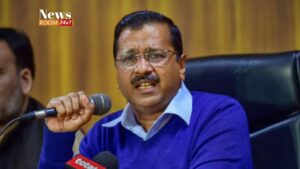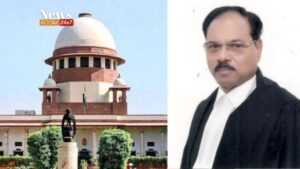MUDA Case: Karnataka High Court Rejects Siddaramaiah’s Plea Against Governor’s Sanction, Dealing a Setback
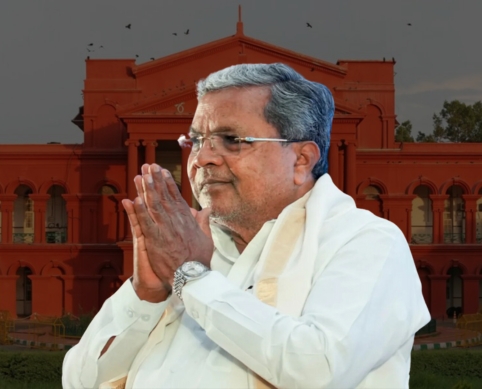
Bengaluru: In a blow to Chief Minister Siddaramaiah, the Karnataka High Court on Tuesday rejected his petition challenging the Governor’s sanction for an investigation into the alleged Mysore Urban Development Authority (MUDA) scam.
The Chief Minister had contested the approval granted by Governor Thaawarchand Gehlot for a probe into alleged irregularities involving the allotment of 14 prime locality sites to his wife by MUDA.
Following six hearings on the petition, which began on August 19, the single-judge bench of Justice M. Nagaprasanna reserved its judgment on September 12.
In addition, the court extended its temporary order from August 19th, directing the special court for public representatives—which was tasked with hearing allegations against Siddaramaiah—to postpone further actions until the petition was settled.
Justice M. Nagaprasanna ruled, “The facts outlined in the petition undoubtedly warrant investigation, especially since the primary beneficiary is the petitioner’s family. The petition is dismissed.”
He further stated, “Any interim order currently in effect is dissolved.” On August 16, the Governor granted sanction under Section 17A of the Prevention of Corruption Act, 1988, and Section 218 of the Bharatiya Nagarik Suraksha Sanhita (BNSS), 2023, permitting an investigation into the alleged offences mentioned in the petitions submitted by complainants Pradeep Kumar S.P., T.J. Abraham, and Snehamayi Krishna.
On August 19, Siddaramaiah challenged the Governor’s order in the High Court, arguing that the sanction was granted without proper consideration, violated statutory mandates, and contradicted Constitutional principles, particularly the advice of the Council of Ministers, which is binding under Article 163 of the Indian Constitution.
Siddaramaiah requested that the governor’s order be overturned, arguing that the governor’s choice was unsupportable legally, improperly handled, and driven by unrelated factors.
After presenting the summary of findings, Justice Nagaprasanna stated that the complainants had good reason to file the complaint or ask the governor for approval.
Declaring that the approval under PC Act section 17A is necessary in the given situation, he said: “A police officer is not required by Section 17A to request permission in a private complaint filed under BNSS sections 200 or 223 against a public servant for offenses that are subject to the Act’s penalties. It is the complainant’s responsibility to request this approval.”
The Judge stated that while the Governor is required by Article 163 of the Indian Constitution to act with the assistance and advice of the Council of Ministers in ordinary circumstances, “the Governor can take independent decisions in exceptional circumstances, and the present case projects one such exception.”
It is sufficient if the reasons are documented in the decision-making authority’s file, especially that of the high office, and those reasons are included in the contested order. There is no issue with the governor using his or her independent discretion to pass the contested order. The file needs to include a disclaimer. He continued, “Objections cannot be used to bring reasons before the constitutional court for the first time.
The Judge went on, “It is not a case of not even a semblance of application of mind by the Governor, but abundance of application of mind,” adding that the gubernatorial order suffers from a lack of mental application in no place.
He added that it is not necessary to give a chance for hearing before section 17A clearance is granted. “If the authority chooses to do so, it is open to it.”
“The decree remains valid despite the governor’s apparent decision to act in a hurry. Instead of an order giving sanction under Section 218 of the BNSS, the order is interpreted to be restricted to an approval under Section 17A of the (PC) Act,” the speaker continued.
In response, Judge Nagaprasanna stated, “I am unable to revoke my own decree. The petition is rejected as it stands. Any interim orders that are in effect as of today shall be dissolved.”
Senior lawyers Abhishek Manu Singhvi and Prof. Ravivarma Kumar represented Chief Minister Siddaramaiah, while Solicitor-General of India Tushar Mehta appeared on behalf of the Governor’s office. Advocate General Shashi Kiran Shetty also made his arguments.
On the side of the complainants (respondents), who sought the Governor’s sanction for investigation, submissions were made by Senior Advocates Maninder Singh, Prabhuling K. Navadgi, Lakshmi Iyengar, Ranganath Reddy, and K.G. Raghavan, among others.
The case revolves around allegations that compensatory sites in a prime Mysuru area, with higher property value, were allotted to Siddaramaiah’s wife, B.M. Parvathi. The sites were reportedly allocated by MUDA as compensation for land she owned, which had been “acquired” by the authority.




